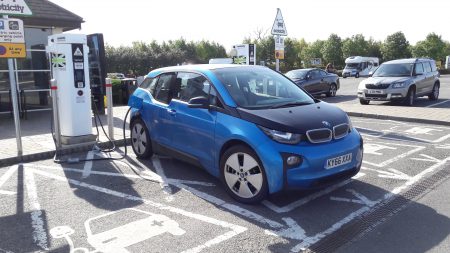- Even in fossil-fuel-dominated grids, BEVs emit only about 50% of the CO2e of traditional internal combustion engine (ICE) vehicles.
- The research took into account lifecycle emissions, considering factors like manufacturing, maintenance, and operation in countries like China, the US, and Germany.
- The emissions from BEVs will continue to decrease as nations transition to cleaner power sources, solidifying their position as a sustainable transportation option.
Battery electric vehicles (BEV) are the clear winner when trying to reduce emissions in the transportation sector, according to Rystad Energy research. Despite incurring higher emissions in the manufacturing process of electric vehicles and an enduring reliance on fossil fuel power generation in many countries, the positive environmental impact of switching to a BEV over the vehicle’s lifetime is unmistakable.

Our analysis shows that battery-powered vehicles contribute at most half the carbon dioxide equivalent (CO2e) of diesel or gasoline cars across their lifecycle, regardless of the country of operation. Even in countries where the power grid is dominated by fossil fuels, battery-powered cars emit about 50% of the CO2e of an internal combustion engine (ICE) vehicle. As renewable sources replace coal and gas-fired generation, emissions related to the operation of BEVs could drop by 86%.
Our in-depth research of lifecycle BEV and ICE vehicle emissions considers every stage of the manufacturing process and the vehicle’s operation.
Read more: OilPrice
It’s Time to Go Green!
If you would like to know more about Solar Panels and the PowerBanx range of home battery systems, and get a free instant quote, please complete our online form:

